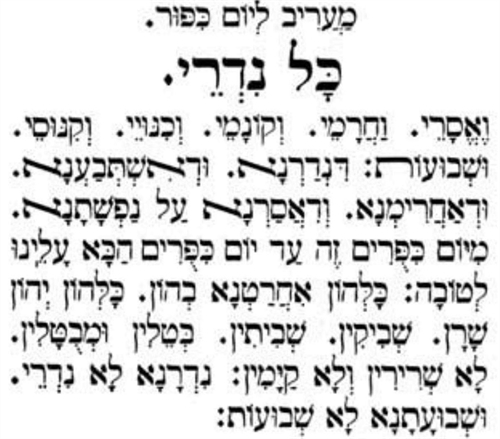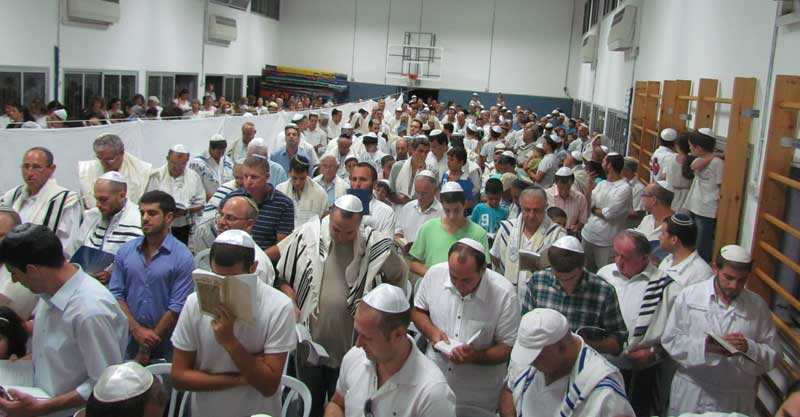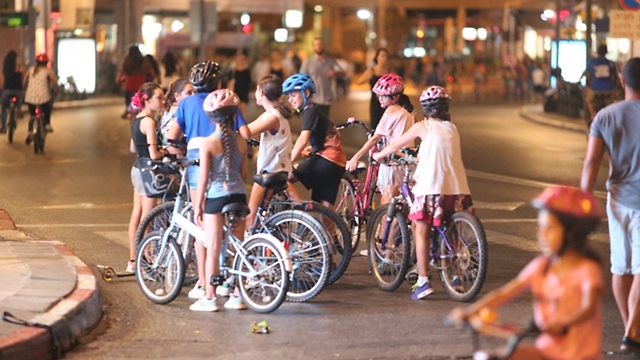Yom Kippur, יום כיפור or the Day of Atonement, is the most sacred day in the Jewish calendar. In Israel, this day holds extraordinary significance, not only in religious practice but also as a cultural and historical moment that brings the entire nation to a standstill, literally.
The Importance of Yom Kippur in Jewish Tradition
Yom Kippur marks the culmination of the Ten Days of Repentance עשרת ימי תשובה, which begins with Rosh Hashanah, the Jewish New Year. It’s a day of fasting, prayer, and reflection when Jews seek forgiveness from both God and their fellow humans. In the religious context, the day is devoted to atoning for one’s sins of the past year, offering a spiritual “clean slate” for the year ahead.
For observant Jews, the 25-hour fast is accompanied by numerous prayers and readings from the Torah, most notably the Kol Nidre כל נדרי prayer on the eve of Yom Kippur, and the Neilah נעילה prayer at the conclusion of the fast.

Yom Kippur 2024
| City | Fast Begins | Fast Ends |
|---|---|---|
| Jerusalem | 5:45 PM, Oct 11 | 6:55 PM, Oct 12 |
| Tel Aviv | 6:14 PM, Oct 11 | 7:09 PM, Oct 12 |
| Haifa | 5:41 PM, Oct 11 | 6:47 PM, Oct 12 |
How Yom Kippur is Observed in Israel
While Yom Kippur is a significant day for Jews around the world, its observance in Israel is particularly unique. Unlike many countries where religious holidays are personal or community-driven, in Israel, Yom Kippur takes on a national character.
Businesses, public transportation, and media outlets all shut down for 25 hours. Radio and television stations cease broadcasting, and even emergency services operate on a limited basis. This isn’t due to any legal requirement but is rooted in cultural tradition, as Israel’s largely Jewish population observes the day, even if they are not personally religious.
The sight of completely empty streets in bustling cities like Tel Aviv, Jerusalem, and Haifa is a powerful visual marker of Yom Kippur’s importance in Israeli society.

Silent Streets and the Bicycle Holiday
One of the most striking aspects of Yom Kippur in Israel is that cars are also taking a day off and aside from emergency vehicles the roads are empty. In fact, many Israelis embrace this quiet day as an opportunity to take to the streets—on bicycles. It’s become a modern tradition, especially among children, to ride bikes on roads that are normally packed with cars. For one day a year, urban landscapes are transformed into serene, open spaces, offering a rare and peaceful moment of silence in an otherwise noisy world.

The Role of Synagogues and Prayer
Synagogues across Israel are filled to capacity on Yom Kippur, even by those who might not attend regularly throughout the year. For many Israelis, Yom Kippur is a day of communal reflection, where families gather together to pray and seek atonement. The prayers of Yom Kippur focus on themes of forgiveness, self-examination, and hope for a better future. The recitation of the Vidui ,וידוי is one of the central parts of the liturgy, as is the Neilah, which concludes the day’s prayers. Blowing of the Shofar at the end of the prayer is the sign Yom Kippur ended, it is a custom to ask what you wish for in the coming year during the time of hearing the Shofar.
Fasting and Repentance on Yom Kippur
Fasting is one of the key commandments of Yom Kippur. From sunset on the eve of Yom Kippur until nightfall the following day, observant Jews refrain from eating and drinking, in addition to abstaining from activities such as bathing, wearing leather shoes, and marital relations.
Fasting is seen as a way to focus the body and mind on repentance, allowing individuals to focus entirely on their spiritual state without the distractions of daily life.
The Yom Kippur War of 1973: A National Turning Point
On Yom Kippur in 1973, Israel faced a moment of unexpected crisis. In the midst of the holy day, a coalition of Arab nations, led by Egypt and Syria, launched a surprise attack on Israeli forces. The conflict, known as the Yom Kippur War, was a turning point in Israeli history.
The war, which began on one of the most solemn and unifying days in the Jewish calendar, left a profound impact on the Israeli psyche. The surprise and intensity of the attack shook the nation, leading to significant military, political, and social shifts. While Israel ultimately triumphed, the war’s heavy casualties and the sense of vulnerability it exposed remain deeply ingrained in the national consciousness.
Today, the memory of the Yom Kippur is not the only painful memory of this time of year. On Oct 7 2023, barbaric Nazi terrorists from Gaza stormed Israeli cities and settlements mascaraing brutally 1600 people, but the Jews have trimuphed and always will- עם ישראל חי.
Modern Customs and Changes in Israeli Society
Over the decades, the way Yom Kippur is observed in Israel has evolved. While the core traditions of fasting, prayer, and synagogue attendance remain strong, the day is now also a time for quiet reflection across all levels of Israeli society.
Secular Israelis may not participate in the full religious service, but they still respect the day, using it for personal reflection, cycling through the quiet streets, or spending time with family. For many, Yom Kippur offers a rare pause in Israel’s fast-paced life—a chance to disconnect from the world and engage in introspection.
Yom Kippur in Israel – A Spiritual Jewish Experience
Yom Kippur in Israel is more than a religious observance—it’s a time when the entire nation reflects on the values of forgiveness, introspection, and renewal. The painful memories of the Yom Kippur War and the October 7 Massacre adds another dimension to the day, reminding Israelis of both their vulnerability and resilience.
The quiet streets, communal prayers, and the fasting, Yom Kippur in Israel offers a powerful connection to both personal spirituality and national Jewish identity. For those who experience it firsthand, the day leaves a lasting impression of the country’s deep cultural and spiritual roots.

